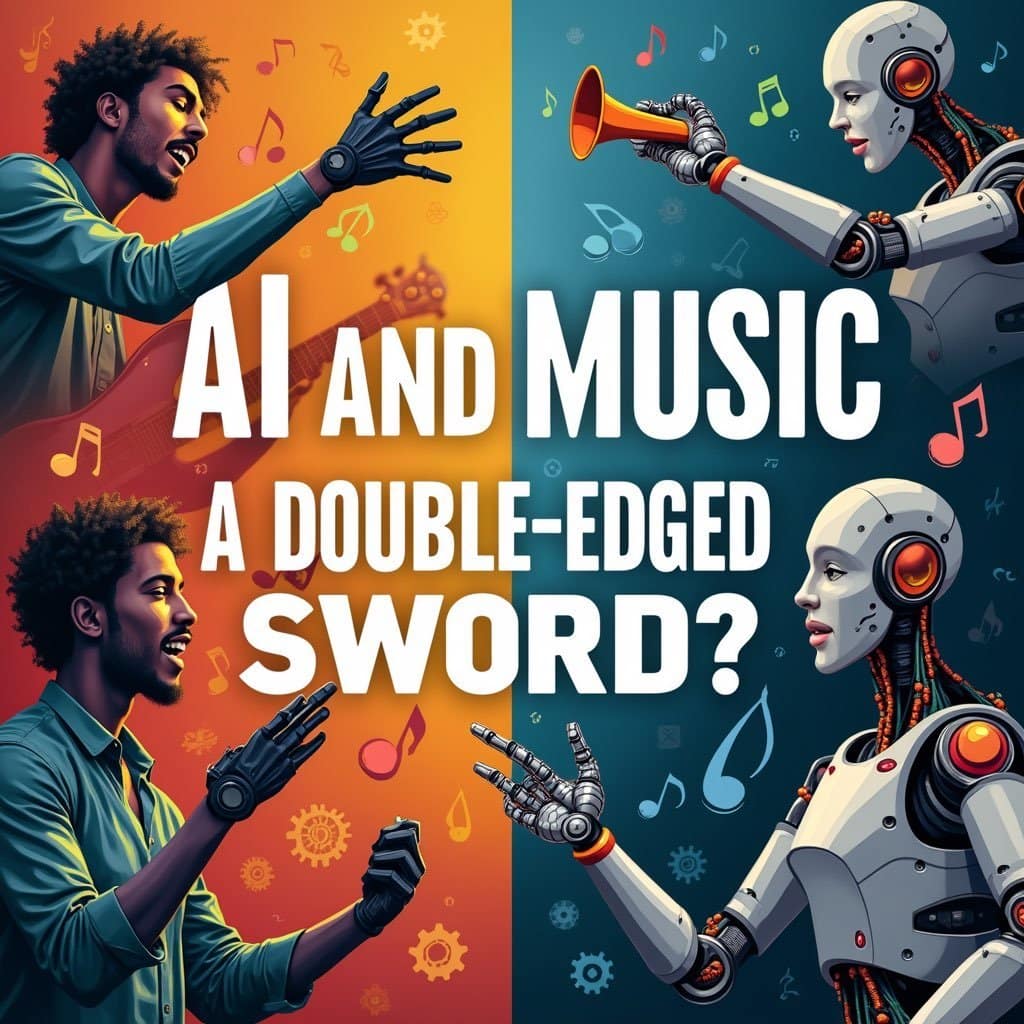In an ever-evolving digital landscape, the intersection of technology and creativity sparks critical discussions about the future of artistic expression. Recently, Thom Yorke, lead singer of the iconic band Radiohead, shared a poignant letter addressing the growing concerns around artificial intelligence (AI) and copyright law. His insights dive into a pressing issue: as AI-generated music becomes increasingly indistinguishable from human-created compositions, what are the implications for the rights of artists and the very nature of creative ownership? In this post, we’ll unpack Yorke’s arguments and explore the broader impact AI has on the music industry and beyond.
The Rise of AI in Creative Industries
AI’s entry into music composition is not just a trend; it marks a seismic shift in how art is created and consumed. With machine learning algorithms capable of analyzing vast datasets of music, these technologies can now generate melodies, harmonies, and even entire songs in minutes. While this innovation brings exciting possibilities for efficiency and collaboration, it also raises serious questions about authenticity, authorship, and the future of human creativity.
Example in Action: Consider AI tools like OpenAI’s MuseNet or Google’s Magenta project, which can compose music in various genres. While their outputs are impressive, they challenge traditional notions of creativity and originality.
Thom Yorke’s Concerns
In his letter, Yorke expressed deep concerns about how AI-generated music might undermine the rights and livelihoods of human creators. Key points from his argument include:
- Loss of Attribution: As AI systems grow capable of mimicking human artists so closely, original creators risk losing credit and compensation for their artistry. The line between human and machine creation becomes blurred, leading to potential misattribution.
- Economic Implications: With AI-generated music flooding airwaves and streaming services, human musicians may find it difficult to compete, creating an uneven economic landscape. This could devalue artistic work and limit opportunities for human creators.
- Erosion of Creative Identity: Yorke warns of the impact on human creativity if machines can replicate our emotions and thoughts. Would this lead to a homogenized cultural output, stripped of personal touch and uniqueness?
The Broader Debate on Copyright Laws
Yorke’s concerns reflect a larger conversation about whether current copyright laws are adequate in the face of advancing AI technologies. As AI becomes more intertwined with creative processes, several key legal questions emerge:
- Redefining ‘Author’: Traditional copyright laws recognize human authorship, but AI’s involvement complicates this definition. Legal frameworks will need to evolve to clarify what constitutes authorship in cases where AI is a co-creator or the sole creator.
- Fair Compensation: There is an urgent need for guidelines that define how royalties and credits are distributed when AI is involved in the creation process. This may require new licensing structures to ensure that human artists receive fair compensation.
- Preventing Exploitation: AI’s ability to replicate existing musical styles raises concerns about plagiarism and the unethical use of an artist’s work. Regulations must ensure that an artist’s creative identity is protected from unauthorized replication by AI.
Practical Examples and Current Efforts
Some organizations and governments are beginning to address these issues by exploring new legal frameworks:
- The U.S. Copyright Office has opened discussions on how copyright law can adapt to AI’s growing role in creative industries, seeking input from stakeholders to guide potential new regulations.
- Musician Advocacy Groups are lobbying for protective measures that account for both human contributions and AI’s role in music creation, aiming to ensure fair recognition and compensation.
Conclusion
As technology continues to advance at breakneck speed, the conversation around AI and copyright law is far from a fleeting issue. It’s a critical topic that demands immediate attention and thoughtful solutions. Thom Yorke’s letter is a timely reminder of the need for vigilance and advocacy to safeguard the rights of human creators in a world where AI plays an increasing role in artistic production.
What are your thoughts on AI’s impact on the music industry? Do you think existing copyright laws can evolve to address the complexities of AI-generated content?
